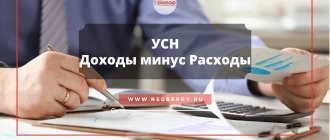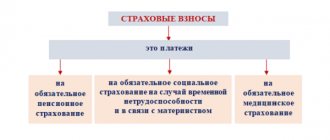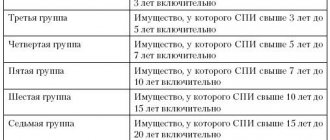Seminars and webinars Ayudar Info
The state is regulating volunteer activities in more and more detail, intending to make them more effective and socially significant.
One of the ways of such regulation is the introduction of various tax benefits, allowing volunteer organizations to direct the maximum of their funds received not as a result of entrepreneurial activities for the intended purposes, and for individual individuals - volunteers - to avoid tax payments on funds issued to them by these organizations.
In this regard, further amendments have been made to the legislation: Federal Law No. 98-FZ dated April 23, 2018 was adopted.
Income concept
For performing official duties at work, a subordinate receives a salary. For many citizens it is the only source of income. This term means economic benefit.
In a broad sense, income is a certain amount of material assets that an individual/commercial structure/state will receive after performing work under an employment contract, providing a service, or as tax revenue, respectively. Moreover, the economic benefit for the subject can be expressed not only in monetary, but also in kind (securities, real estate, jewelry, etc.).
Conditions for volunteer activities have been clarified
Federal Law No. 135-FZ, effective May 1, 2018, has been significantly amended precisely in terms of provisions on voluntary (volunteer) activities.
It has been established that participants in such activities are volunteers (volunteers), organizers of such activities and voluntary (volunteer) organizations (Article 5 of this law).
The organizer of voluntary (volunteer) activities will need to be understood as non-profit organizations and individuals who involve volunteers (volunteers) in relevant activities on a permanent or temporary basis and manage their activities.
A voluntary (volunteer) organization can be created as an NPO in the form of a public organization, social movement, public institution, religious organization, association (union), foundation or autonomous NPO.
Income subject to taxation
One of the main sources of budget replenishment is personal income tax. The specifics of paying the specified format of the fiscal fee are contained in the Tax Code of the Russian Federation (Chapter 23).
An individual is obliged to transfer to the budget an amount in the form of tax deductions for the following categories of income:
- payment for work/provision of services within the framework of civil law transactions;
- salaries, bonuses and alternative incentive formats at the enterprise;
- dividends on securities and other types of profit provided for as part of the distribution of profits of a commercial structure;
- sale of property (provided that the period of ownership is no more than 3/5 years);
- provision of an apartment for rent;
- insurance amounts (subject to the occurrence of an event provided for in the contract);
- winnings from lotteries;
- profit from deposits;
- amounts received as royalties;
- pensions issued in non-state structures (NPF).
Additionally, fiscal deductions are provided from the amounts allocated by the employer to the posted person (subordinate) for the payment of room/daily allowance in excess of the established limit. Funds intended for travel and accommodation of an employee are not taxed if the expenses are documented.
Personal income tax is also paid by those who provide private transportation.
When do you need to report to the Federal Tax Service?
The form is intended solely for reporting the absence or incorrect information on the website of the Federal Tax Service of Russia and does not imply feedback. The information is sent to the editor of the website of the Federal Tax Service of Russia for information. Now objects can be divided into two parts: real estate and other property. Specific mention of types of real estate (e.g. apartment, room, house, etc.) is excluded.
In addition, grants from the President of the Russian Federation in any area are exempt from personal income tax (NDFL), TASS reports. Volunteer income “related to their charitable activities and received from organizations in kind – in the form of renting living quarters, organizing travel, meals, and providing equipment” – is excluded from the tax base.
In what cases is financial assistance not subject to tax? Is personal income tax charged on the cost of travel tickets paid by the company? The employer is the tax agent in relation to the income that employees received from him in cash and in kind.
Income not subject to taxation
Economic benefit for a citizen is not always associated with the obligation to transfer part of the money to the state treasury. An individual is exempt from the fiscal burden if he receives:
- amounts provided under mortgage lending on preferential terms;
- social payments (benefits, pensions, etc.);
- remuneration for volunteers who perform work/provide services free of charge;
- amounts intended for donors;
- alimony payments;
- grants from the state;
- awards for achievements in the field of science, culture, art;
- scholarships for students and representatives of universities.
Article 217 of the Tax Code of the Russian Federation lists an exhaustive list of income that excludes taxation of citizens.
But in law enforcement practice, this article is interpreted ambiguously, since it combines both economic benefits, which are not subject to taxation, and profits that are exempt from the fiscal burden. Tax authorities often make mistakes by transferring non-taxable income to the opposite category and vice versa. In particular, the amounts allocated to an employee from the company (to pay for goods, food, utilities, training courses, etc.) are formally not subject to taxation, but in Art. 217 of the RoK of the Russian Federation they appear as “exempt” from the fiscal burden.
Payments to volunteers: what income will be exempt from personal income tax
Published since 1997. The founders of the newspaper are the State Duma and the Federation Council of the Russian Federation. The publication is the official publisher of federal laws, regulations, acts and other documents of the Federal Assembly. "Parliamentary Newspaper" has press points and representative offices in ten constituent entities of the federation.
Sergei Kravtsov's first statements as Minister of Education of the Russian Federation turned out to be cautious. In particular, he announced continuity in the work of the ministry, which, apparently, does not apply to the adoption of the Federal State Educational Standards for general education, which were actively promoted by the previous leadership. Sergei Kravtsov believes that in this regard “we need to take a break.” How did the professional community react to this? In practice, it often happens that a company purchases uniforms for its employees. As a rule, such actions are aimed at creating a unified corporate style of the company. But what if the company purchased such clothes not for the organization’s employees? How to justify the costs in this case?
Payments to reimburse expenses incurred as part of volunteer activities are also exempt from personal income tax.
Tax rates
The question of how much must be paid (to the government treasury) for economic benefits depends on the type of income and taxpayer status. All entities that bear the tax burden, in accordance with current legislation, are divided into 2 categories - residents and non-residents of the Russian Federation. The first includes those who live in the country for at least 183 days a year, the second includes those who stay on the territory of the Russian state for less than the specified period.
The legislation provides for the following tax rate scale:
- 5%;
- 9%;
- 13%;
- 15%;
- 30%;
- 35%.
A minimum threshold of fiscal fees (5%) is provided for non-residents receiving dividends on securities of foreign companies.
The 9% rate applies to profits on bonds secured by mortgage lending programs.
Most of the income of citizens is subject to a fiscal payment of 13% (salaries, sale of property).
The 15% coefficient applies to economic benefits received by foreigners as dividends from Russian enterprises.
A rate of 30% is provided for alternative types of profit that are earned by non-residents by investing in the domestic economy.
The maximum threshold of fiscal fees (35%) is withheld from Russians who win an amount exceeding 4,000 rubles in the lottery. A similar rate applies to profit from interest on bank deposits and economic benefits provided for in insurance contracts.
Who is the payer
According to the law (Article 207, 207.1 of the Tax Code of the Russian Federation), the list of entities obligated to pay personal income tax includes:
- persons with the status of residents of the country;
- persons with the status of non-residents of the country who receive profit from investments in Russian companies;
- IP;
- owners of law firms;
- private practice notaries;
- other specialists engaged in entrepreneurial activities.
Foreigners working in missions of international states and foreign organizations are exempt from the fiscal burden.
The obligation to pay personal income tax also applies to stateless persons who are on the territory of the Russian state for at least 183 days a year.
Tax deductions
Citizens who conscientiously fulfill fiscal obligations, in certain cases, have the right to count on a partial return of amounts transferred to state income. In particular, the amount of personal income tax can be reduced when purchasing an apartment, paying for a relative’s education, or voluntary life and health insurance.
Table 1. Tax deduction formats.
| Name | For whom are they intended? |
| Social | Users of educational and medical services, as well as taxpayers investing in non-state pension insurance programs |
| Standard | Certain categories of citizens - persons with disabilities, disabled people of the Second World War, Heroes of the Soviet Union / Russian Federation, etc. |
| Professional | Persons engaged in entrepreneurial activities and private practice - notaries, lawyers, arbitration managers, writers, composers, etc. |
| Property | In cases of alienation of certain objects of material value - land, real estate, car |
| Investment | Personal income tax payers who make transactions on the stock market and transactions with securities |
Each type of deduction cannot be carried over to the next year (with the exception of purchasing an apartment).
Maximum limits have been established that can be compensated to a person for certain categories of expenses. In particular, the amount of social deduction cannot exceed 120 thousand rubles per year, investment deduction - 400 thousand rubles per year.
Watch the video for everything about personal income tax:
To receive funds, you must submit a personal income tax certificate 3 and documents confirming the right to a tax deduction to the tax authority. You can contact your employer for compensation under the standard category.
Tax calculation rules with examples
To calculate the amount of personal income tax, you must determine the tax base (TB). This parameter is fixed monthly in an ascending manner (starting from January). Then the NB is minimized due to deductions provided by the employer (standard, property, social).
To calculate the tax, the formula is used:
Tax base for personal income tax (from the beginning of the year) x 13% = value of personal income tax (from the beginning of the year)
To determine the amount of fiscal tax for the current month, it is enough to apply the following calculation method:
Example No. 1
Petrov I.V. receives a salary of 42,000 rubles/month. His son is being treated in a private clinic, and therefore the employee receives a social deduction in the amount of 1,200 rubles monthly. Additionally, in June Petrova I.V. received a bonus of 15,000 rubles. Let us determine the amount of personal income tax that is subject to withholding for June.
The NB tax will be (period from January to June):
42,000 rub. x 6 months + 15,000 rub. – (RUR 1,200 x 6 months) = RUR 259,800
Let's calculate the amount of personal income tax (for the period from January to June):
259,800 x 13% = 33,774 rub.
Let's calculate the tax withheld from income for the period from January to May:
(42,000 rub. x 5 months – (1,200 rub. x 5 months)) x 13% = 26,520 rub.
The personal income tax amount for June will be:
RUR 33,774 – 26,520 rub. = 7,254 rub.
Example No. 2
Kovalev S.S. rents out storage space to an enterprise for 25,000 rubles/month.
Let's calculate how much a citizen will receive in his hands after withholding personal income tax:
- 25,000 rub. x 12 months = 300,000 rubles/year;
- 300,000 rub. x 13% = 39,000 rub. (tax amount).
The lessor's annual profit after paying personal income tax will be:
300,000 rub. – 39,000 rub. = 261,000 rub.
Possible innovations for 2018
Unfortunately, there is no talk of progressive income taxation yet. The Ministry of Finance, the Ministry of Economic Development and the Center for Strategic Research are discussing a completely different tax maneuver. Representatives of these departments are going to leave the flat scale, but at the same time believe that the tax burden on the population should be increased. The only way in which the “progressiveness” of the new tax system can be expressed is that a certain tax-free minimum income will be introduced. These innovations have been discussed in the government since the fall of 2021. Let us recall that according to the order of Vladimir Putin, the Federal Assembly must develop proposals for tax reform by December 2017. The President said that fiscal reforms are an important part of the implementation of the plan to accelerate Russia’s economic growth in the period 2018-2024. As for the proposals of individual departments, they can be expressed in the following theses:
- The Ministry of Finance insists that personal income tax should be increased to 15%, of which 6 to 8 percentage points should be redirected to the general federal budget. The increase in this fee can be compensated by reducing the insurance premium rate, reducing it to 21% (currently it is 30%);
- Representatives of the Ministry of Economic Development propose to increase the personal income tax rate to 15% and introduce the concept of a deduction equal to the amount of the subsistence minimum. At the same time, proposals are coming from this department to increase VAT to 21% (the current rate is 18%) and reduce insurance fees to 21%;
- The Center for Strategic Research says that personal income tax should be increased to 17%, but all or the poorest Russians should be given the right to a deduction in the amount of the subsistence minimum.
It is worth noting that some government experts suggest that each regional government should approve personal income tax rates independently. Russians can receive the right to a deduction in the amount of the subsistence minimum. Separately, it is necessary to mention the bill that was submitted for parliamentary consideration by an initiative group of deputies from the Liberal Democratic Party. This document proposes to exempt from paying income taxes those Russians who receive a salary of less than 15,000 rubles. But for all other categories it is proposed to introduce a progressive tax scale, which will force holders of excess income to fork out. The main theses and proposals of the bill are expressed as follows:
- people receiving an annual income of 180 thousand to 2.4 million rubles pay a tax of 13%. At the same time, it is proposed to subject to taxation only that part of the income that goes beyond the level of 180 thousand;
- individuals who managed to receive income from 2.4 million to 100 million rubles must pay a fixed tax in the amount of 289 thousand per year and another 30% of income amounts that go beyond 2.4 million;
- the category of persons receiving more than 100 million per year must pay a fixed personal income tax in the amount of 29.6 million rubles and additionally deduct 70% of income that exceeds 100 million.
According to Igor Shuvalov, who holds the post of first deputy prime minister of the country, the restructuring of the tax system is planned for 2021. Private experts express the opinion that such experiments with personal income tax may fail. First of all, they predict a widespread return of the gray salary payment scheme in commercial structures. Firms can use quite official loopholes - for example, register their employees as individual entrepreneurs in order to pay a 6% tax, or pay salaries disguised as interest on deposits. At the same time, today the shadow part of employee compensation is estimated at about 5 trillion rubles. V.L. Kiseleva, expert consultant at the Publishing House “Accountant Advisor”
| The literal translation of the word “volunteer” is “volunteer”. That is, people of their own free will and absolutely free of charge engage in any social activity. New explanatory dictionary of the Russian language T.F. Efremova gives the following concepts: “A volunteer is someone who voluntarily takes part in some activity,” and “A volunteer is someone who voluntarily takes on any work or any responsibilities.” |
The legal basis for the development of volunteerism in Russia was laid by a number of legislative acts.
For example, Federal Law No. 82-FZ of May 19, 1995 “On Public Associations” regulates social relations arising in connection with the exercise by citizens of their right to unite in organizations. Article 32 of the Federal Law of January 12, 1996 No. 7-FZ “On Non-Profit Organizations” contains indirect reference to the right to use the gratuitous labor of citizens by non-profit organizations. Charitable activities in Russia are also regulated by the provisions of the Constitution of the Russian Federation and the Civil Code. In the Federal Law of August 11, 1995 No. 135-FZ “On Charitable Activities and Charitable Organizations” (hereinafter referred to as Law No. 135-FZ), a definition of a volunteer was given for the first time: Volunteers (volunteers) are individuals who carry out charitable activities in the form of gratuitous work. , provision of services (volunteer activities) in the interests of beneficiaries. If you have any questions, you can consult for free via chat with a lawyer at the bottom of the screen or call by phone (consultation is free), we work around the clock.
Charitable activity is understood as the voluntary activity of citizens and legal entities in the disinterested (free of charge or on preferential terms) transfer of property, including money, to citizens or legal entities, the disinterested performance of work, the provision of services, and the provision of other support.
Note. Access to the full contents of this document is restricted. In this case, only part of the document is provided for familiarization and avoidance of plagiarism of our work. To gain access to the full and free resources of the portal, you just need to register and log in. It is convenient to work in extended mode with access to paid portal resources, according to the price list.
Tax payment, reporting
The responsibility for withholding personal income tax falls on tax agents (employers, lawyers, notaries and other entities specified in Article 226 of the Tax Code of the Russian Federation). They are required to submit to the tax authority:
- certificate 2-NDFL;
- calculation according to form 6-NDFL.
Both document formats must be submitted no later than March 1 of the year following the reporting year.
Employers withhold tax from wages on a monthly basis, transferring it to the bank account of the regulatory authority.
In other cases, the taxpayer is obliged to fulfill the fiscal obligation independently by submitting a 3NDFL certificate to the regulatory authority in person/by mail or using the services of the MFC. The document must be sent no later than April 30 of the year following the reporting year, and the fee amount must be transferred by July 15.
Consequences of non-payment of tax
For failure to fulfill fiscal obligations/late contributions to the budget, both tax agents and those who are required to fill out 3NDFL are liable in the form of a fine.
An employer who deliberately evades payment of fees must additionally transfer to the treasury an amount equal to 20% of the basic tax. He is released from liability if he independently made deductions before the supervisory authority discovered the fact of non-fulfillment of the fiscal obligation. A fine is not charged if the agent provided reliable information in the reports and did not underestimate the figures in the declaration. Also, liability does not arise when 6 personal income taxes are filed by the employer within the prescribed period.
For untimely transfer of money to the budget, penalties are provided under Article 75 of the Tax Code of the Russian Federation.
In case of failure to submit personal income tax certificate 3 on time, the taxpayer is subject to a fine of 5% of the amount of the fiscal fee for each month (but not less than 1000 rubles and not more than 30% of the tax amount). For tax evasion, an individual is also liable under Article 198 of the Criminal Code of the Russian Federation.
To implement federal programs in the economy and social sphere, the state is forced to look for additional sources of budget replenishment. In 2021, not only the list of profits subject to taxation has expanded, but also the list of persons required to declare their own income. Brief reporting is provided even for certain categories of recipients of social benefits. But, while seeking additional funds to replenish the budget, the state is pursuing an alternative goal - to minimize the level of corruption in the country and reduce the share of the shadow economy in the domestic market.
Top
Write your question in the form below
Conclusion
In any state there are taxes, since the state can function normally only if they exist. The state takes upon itself the main concern of maintaining peace within society, providing social assistance to those in need, and protecting citizens.
The useful function of taxes is obvious, although for many it is not very pleasant. In our country, in most cases you can only hear about an increase in taxes, but sometimes exceptions are made for certain categories of citizens, and the tax amount is reduced or completely canceled.








